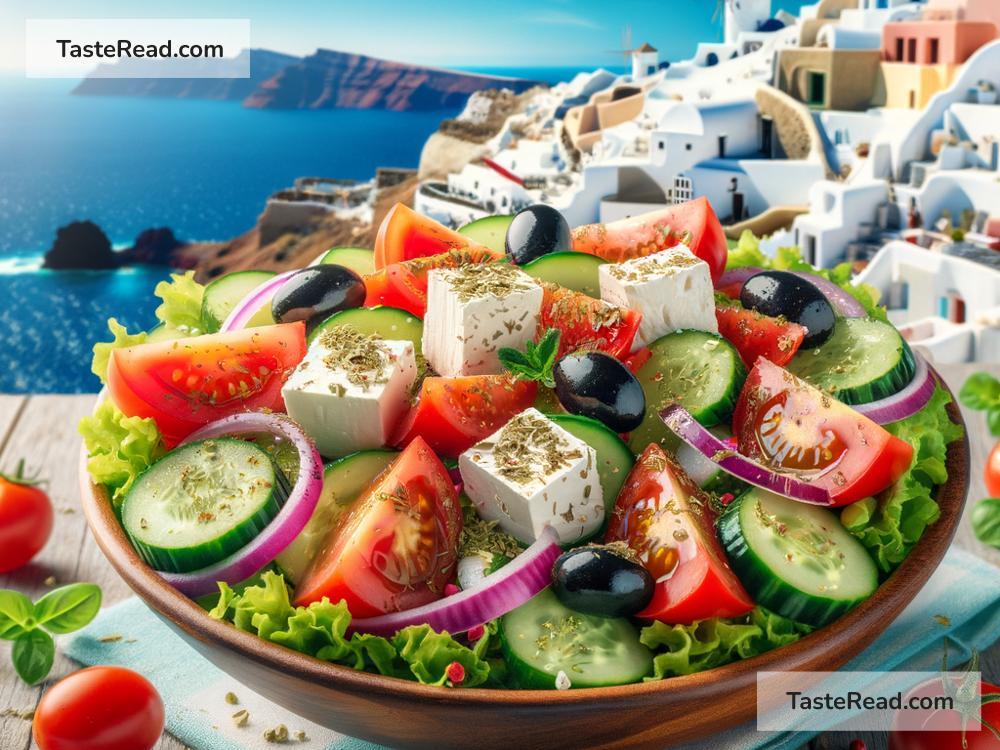Why Greek Cuisine is One of the Healthiest and Most Delicious in the World
Greek cuisine is not just food; it’s a fascinating odyssey of taste, health, and tradition that traces back thousands of years. With its roots deeply embedded in history and geography, Greek food stands out for its simplicity, variety, and nutritional value, making it one of the healthiest and most delicious cuisines worldwide.
Simplicity is Key
One of the most incredible aspects of Greek cuisine is its simplicity. Greek cooking doesn’t rely on heavy sauces or complicated recipes to taste good. Instead, it shines through the quality and freshness of its ingredients. Olive oil, wild herbs, fresh vegetables, grains, and legumes form the backbone of this cuisine, creating dishes that are as straightforward as they are tasty.
The Mediterranean Diet
The health benefits of Greek cuisine are largely due to its foundation in the Mediterranean diet, renowned for promoting longevity and warding off many chronic diseases. This diet emphasizes eating primarily plant-based foods, like fruits, vegetables, whole grains, legumes, and nuts. It incorporates moderate amounts of dairy and uses olive oil as the main source of fat, known for its heart-healthy effects.
Fresh Ingredients
Greek dishes are packed with fresh vegetables and fruits, which are sources of essential vitamins, minerals, and fiber. Dishes like Greek salad, known locally as “horiatiki,” are staples that celebrate the richness of the country’s agricultural produce, combining ripe tomatoes, cucumbers, onions, and green bell peppers, topped with feta cheese and olives.
High-Quality Proteins
Proteins in Greek cuisine come from a variety of sources. Seafood, legumes, and lean meats such as chicken and lamb are prevalent. These high-quality proteins are cooked in ways that retain their nutritional value—grilled, baked, or stewed with minimal use of processed ingredients. For vegetarians, Greek cuisine offers a bounty of options like lentil soup (“fakes”) and stuffed grape leaves (“dolmadakia”), ensuring a balanced diet.
Olive Oil – The Liquid Gold
Perhaps the most iconic element of Greek food is olive oil, often referred to as “liquid gold” for its numerous health benefits. Rich in monounsaturated fats and antioxidants, it’s a staple in Greek cooking, used not just for cooking, but as a flavor enhancer in almost every dish. The liberal use of olive oil contributes to the heart-healthy aspect of Greek cuisine.
The Flavor Factor
Greek cuisine is anything but bland. The use of herbs and spices such as oregano, mint, garlic, and cinnamon adds layers of flavor without the need for excess salt or fat. These seasonings not only elevate the taste but also offer various health benefits, including anti-inflammatory and antioxidant properties.
Yogurt and Cheese
Greek yogurt and cheese, particularly feta, are integral parts of the diet, providing good sources of calcium and probiotics. Greek yogurt, thicker and creamier than its counterparts, is a versatile ingredient that can be used in both savory dishes and desserts. Feta cheese, with its tangy flavor, enhances salads, pies, and meat dishes, adding depth and richness.
The Social Aspect
Eating Greek is not just about the food itself but how it’s consumed. Meals are often social occasions, meant to be enjoyed slowly with family and friends. This approach to eating encourages portion control and mindfulness, contributing further to the health benefits of Greek cuisine.
Conclusion
Greek cuisine stands at the crossroads of taste and health, offering a diet that’s as delicious as it is beneficial. Its emphasis on fresh ingredients, high-quality proteins, the liberal use of olive oil, and the natural flavors of herbs and spices make it a standout in the culinary world. More than just a way of eating, it’s a lifestyle—one that celebrates simplicity, flavor, and well-being. Whether you’re savoring a piece of feta cheese, enjoying a hearty lentil soup, or dipping bread into olive oil, the essence of Greek cuisine is about nourishing both the body and soul. So, the next time you’re pondering what to eat, consider going Greek—not just for the taste, but for your health.


